Comments and Issues
Coronavirus, Hungervirus and Human Rights
Published
4 years agoon
By
Olu Emmanuel
By Emmanuel Onwubiko
I grew up in the then sleepy town of Kafanchan in Kaduna State not knowing that there is a possibility that my next door neighbour slept in an empty stomach. This was precisely because although one grew up in an average home but the fact that we were privileged to have Parents that were hardworking as traders in their own right and who prioritizes the place of good nutritious foods for their Children, made life a little bearable and comfortable even if not richly comfortable.
The nearest I Came as a school boy to meeting a starving contemporary was in my early Secondary School days in a day school whereby this particular bosom friend often found it delightful to spend virtually the whole afternoons at my place and sharing with me my own portion of the lunch prepared generously by Caroline my Sweet Mother who at a time became so used to seeing my friend that she started keeping double portions for me and my friend.
One day out of curiosity I told my friend that we will be going straight to his house as I will not want us to go to my place until the late evening since I would love that we strolled down to the near-by fruits farm to harvest for ourselves some ripe mangoes.
At first, he hesitated but noticing that I meant my words so my friend conceded and we went straight to their house. We got to his place exactly when it was time for lunch and to our amazement there was no food kept for him because his Mother told us that she felt that since he was used to spending the afternoons at my place that she thought that we will eat at my place.
There and then my friend opened up to me to tell me that since their dad retired from the Nigerian Railways and he has not been paid his gratuities and pensions that it has been tough with them and that it takes the effort, resilience and hard work of their Mum to feed their family the best they can. My friend then told me that it was hunger and poverty that motivate him to be committed at school so he can get a good grade to proceed to further studies if he can get the state scholarship so as to obtain his higher educational qualifications to be able to rescue his family from their perennial hunger and poverty.
This same situation of not having good nutritious foods to eat is the lot of millions of school children which informed the decision of the Federal Government to start off the Schools feeding programmes which has been marred in corruption and inefficiency. The story of massive corruption has always been the problem with virtually all government’s midwifed interventions to check the pervasive effects of poverty and the mass hunger in Nigeria.
It is also true that the large-scale corruption in the implementation of the Schools feeding programmes and the Conditional Cash Transfer of the current administration have failed spectacularly like their predecessors such as the POVERTY Alleviation Scheme of the previous Federal administration to address the high incidence of mass poverty and hunger in the land.
Two academics Isa Aminu and Timothy Onimisi wrote that: “Worried by the continued rise in poverty level, successive governments have formulated one policy or the other to tame the Social malaise. But the POVERTY level has continued to rise. The sorry state of poverty in Nigeria has led the World Bank (1996) to describe Nigeria as a paradox. This is because Nigeria is a Country of immense wealth endowed with human and material resources, yet her citizens continue to wallow in abject poverty. By 1999, the World Bank estimated that Nigeria has earned $300 billion from oil. Between 1999 and 2011 the Country netted nearly $300 billion in Oil and Gas.”
The systemic corruption talked about by the duo aforementioned has even become like a hydra -headed monster since the coming of the current administration headed by President Muhammadu Buhari.
The total lack of transparency and accountability in the financial affairs of the state run NNPC has led to consistent loses since 2015 just as the Federal government has continued to borrow hugely from all sorts of places and by so doing ensuring that poverty and hunger may never abate because the practice of borrowing to service recurrent expenditures and pretend to be building infrastructures whereas these cash are siphoned are the fastest way of perpetuating poverty and hunger in Nigeria. Below is how a major Nigerian Newspaper reported the massive mismanagement of the Nigerian National Petroleum corporation (NNPC) since the current administration came to power in 2015 and the President became the Petroleum Minister with his late Chief of Staff Abba Kyari as the Chairman of the governing board and another of the kinsman of the late Chief of Staff as Group managing director after the other Borno state born GMD appointed by Buhari retired.
The newspaper told us that the Nigerian National Petroleum Corporation (NNPC) recorded loses in the region of N551.46b from January 2015 to December 2018, reports The Guardian.
Details of financial records published on the company’s website revealed that the national oil company repeatedly failed to meet projected profits as its subsidiaries, particularly refineries, running cost at the headquarters and other arms left whopping deficits.
The corporation recorded N267.14b loss in 2015. The figure stood at N197b in 2016. In 2017, data from its financial statements showed N82b in operational losses, while a deficit of N5.46b was posted for January and August in 2018.
While the company has excluded key details such as taxes and figures from the Nigeria Liquefied Natural Gas (NLNG) Ltd, it has continually failed to perform when compared to other national oil companies in Africa and other parts of the world.
Though the firm recorded a trade surplus of N80.57b last year, operating deficit recorded by the nation’s refineries alone rose sharply by 39 per cent to N132.5b in 2018.
When compared to the previous year, the data showed that the refineries posted a loss of N95.09b.
While the corporation earned N2.046t in revenue in 2015, it spent N2.313t leaving a loss of N267.138b. Its corporate headquarters recorded the highest loss of N162.736b, while its product supply and distribution arm, the Pipelines and Products Marketing Company (PPMC) came second with N162.06b loss, followed by a combined loss of N82.09b from its three refineries.
In 2016, the financial and operational report showed that the corporation earned N1.726t, but recorded an expenditure of N1.923t. Losses from its refineries alone totaled N78.95b.
The larger part of the losses made by the company in the past four years reports The Guardian came from its corporate headquarters, refineries, and mounting under-recovery from import of petroleum products.
However, The Guardian noticed that while the country is struggling to declare profits, Saudi Arabia’s Arambo posted a net income of $33.8b in the first six months of 2017 alone. Angola’s Sonangol posted a profit of $68m in 2016. Despite the payment of $853m in damages in the third quarter, Brazil’s Petrobras made $7b in 2018.
Most stakeholders, who expressed worry over the situation in diverse interviews with the newspaper, said the losses galore would continue without holistic reforms in the nation’s oil sector.
While lack of reform is allegedly robbing the nation of about N3t in foreign investments, the stakeholders insisted that government’s interference in the corporation’s affairs, subsidy on consumption of petroleum products, and the shrouded system being operated by the firm would continue to limit NNPC potentials. This administration has built up a legacy of theft, opaqueness and lack of transparency in the running of the NNPC which is the largest foreign revenue generating resources for the Country. Corruption in the NNPC dovetails into the inability of government to properly implement measures to combat the twin social evils of poverty and hunger in the land afflicting over 100 million families.
Two years back, an official of government gave an idea of why the POVERTY Alleviation Scheme has not worked in the Country for decades.
In that 2017 newspaper report, the media stated that the Federal Government said undue influence of political patronage and the godfather syndrome were among the factors frustrating poverty reduction intervention in the country.
Besides, the report says the presidency is worried over what it described as “weak partnership among the three tiers of government” even as it recognises that no tier can deal with the poverty issues alone.
Head of the National Social Safety Coordinating Office under the purview of the Vice President, Peter Papka disclosed this in Kano pointing out that the Federal Government was not satisfied with the level of impact of its initiatives on poverty reduction on the poor and vulnerable, in spite of the disbursement of huge resources.
“While government spending on poverty reduction interventions has been on the increase, there has not been commensurate lifting of people out of poverty, rather people are getting poorer.
“We have observed weak performance tracking of people handling it, poor coordination and inappropriate targeting process of the poverty reduction programmes,” he stated.
He also lamented that the programme was being managed through top-down identification of the poor.
Papka, who spoke while inaugurating 180 Community Based Trainees for social safety net programme in Kano, said the new agency has entered into a partnership with the state government to ensure the smooth implementation across the selected 15 local councils in the state.
The first phase of the pro-poor programme under the office of the Vice President is running in 11 states of the federation. The selected trainees are presently undergoing a four-day capacity building on how to identify the vulnerable and poor, who would benefit from the social safety intervention.
This open confession that corruption has consistently frustrated efforts to alleviate poverty amongst millions of Nigerians was however not confronted and tackled by relevant anti corruption bodies showing that there may be a deliberate overlooking of the big issue of large scale corrupt practices by government officials who are frustrating the efforts to reduce hunger and poverty in the Country.
The emergence of the CORONAVIRUS PANDEMIC IN NIGERIA magnified the colossal situation of corruption by federal government officials who can’t account for how billions budgeted for the Social investment programme were spent. This has led to what the Ooni of Ife the respected traditional ruler In the South West of Nigeria termed as high rate of HUNGERVIRUS.
The claim that HUNGERVIRUS kills more Nigerians than CORONAVIRUS is factually accurate. In 2019 Nigeria became the POVERTY capital of the World. In October 2020 Anup Shah wrote that causes of hunger are related to POVERTY.
The writer asked that we consider the following: Over 9 million people die worldwide each year because of hunger and malnutrition. 5 million are children; Approximately 1.2 billion people suffer from hunger (deficiency of calories and protein); Some 2 to 3.5 billion people have micronutrient deficiency (deficiency of vitamins and minerals); Yet, some 1.2 billion suffer from obesity (excess of fats and salt, often accompanied by deficiency of vitamins and minerals).
The writer then alluded to the fact that even as hunger ravages most parts of the global communal we need to realize that Food wastage is also high because we must not that; In the United Kingdom, a shocking 30-40% of all food is never eaten; In the last decade the amount of food British people threw into the bin went up by 15%; Overall, £20 billion (approximately $38 billion US dollars) worth of food is thrown away, every year; In the US 40-50% of all food ready for harvest never gets eaten; Of the food that does eventually reach households, some 14% is wasted, resulting in something like $43 billion of wastage; If food reaching supermarkets, restaurants and cafeterias is added to the household figure, that wastage goes up to 27%; In Sweden, families with small children throw out about a quarter of the food they buy.
Turning to Africa the researcher said that in some parts of Africa a quarter or more of the crops go bad before they can be eaten. More generally, high losses in developing nations are mainly due to a lack of technology and infrastructure as well as insect infestations, microbial growth, damage and high temperatures and humidity.
The impacts of this waste is not just financial. Environmentally this leads to; Wasteful use of chemicals such as fertilizers and pesticides; More fuel used for transportation; More rotting food, creating more methane — one of the most harmful greenhouse gases that contributes to climate change.
The import of the above analysis is to serve as a quick reminder to the Nigerian government that the purpose of GOVERNMENT is to deliver services and policies that if meticulously implemented could lift millions of Nigerians to their best selves away from mass poverty. This theme leads us to the larger question of the responsibility of government in our aspiration to end poverty, hunger and inequality.
Anne-Marie Slaughter concluded rightly and I share in her brilliant submissions that the three responsibilities of any government are to PROTECT, TO PROVIDE AND INVEST IN PEOPLE.
She wrote that the oldest and simplest justification for government is as protector: protecting citizens from violence.
Thomas Hobbes’ Leviathan the writer observed, describes a world of unrelenting insecurity without a government to provide the safety of law and order, protecting citizens from each other and from foreign foes.
The horrors of little or no government to provide that function she stated are on global display in the world’s many fragile states and essentially ungoverned regions.
This writer will quickly list present day Nigeria as one of such with high rates of crimes, corruption amongst the officials, breakdown of Law and order, violence and general collapse of basic infrastructures of health which the CORONAVIRUS PANDEMIC IN NIGERIA has exposed with the demise of the Chief of staff to President Muhammadu Buhari who for five years failed to improve even the Presidential healthcare facility within the confines of the office of Mr. President with an estimated sum of over N50 billions in the last five years budgeted and released.
The aforementioned writer said that the idea of government as protector requires taxes to fund, train and equip an army and a police force; to build courts and jails; and to elect or appoint the officials to pass and implement the laws citizens must not break.
Regarding foreign threats, government as protector requires the ability to meet and treat with other governments as well as to fight them.
Then the concept of government as provider she said comes next: government as provider of goods and services that individuals cannot provide individually for themselves. Government in this conception is the solution to collective action problems, the medium through which citizens create public goods that benefit everyone, but that are also subject to free-rider problems without some collective compulsion.
The basic economic infrastructure of human connectivity she said falls into this category: the means of physical travel, such as roads, bridges and ports of all kinds, and increasingly the means of virtual travel, such as broadband.
All of this infrastructure can be, and typically initially is, provided by private entrepreneurs who see an opportunity to build a road, say, and charge users a toll, but the capital necessary is so great and the public benefit so obvious that ultimately the government takes over.
A more expansive concept of government as provider is the social welfare state: government can cushion the inability of citizens to provide for themselves, particularly in the vulnerable conditions of youth, old age, sickness, disability and unemployment due to economic forces beyond their control, she argued.
The future of government builds on these foundations of protecting and providing.
Government she believes will continue to protect citizens from violence and from the worst vicissitudes of life, the author affirmed and I subscribe to it absolutely.
She recalled that technology reporter Gregory Ferenstein has polled leading Silicon Valley entrepreneurs and concluded that they “want the government to be an investor in citizens, rather than as a protector from capitalism. They want the government to heavily fund education, encourage more active citizenship, pursue binding international trade alliances and open borders to all immigrants.” In the words of Alphabet Chairman Eric Schmidt: “The combination of innovation, empowerment and creativity will be our solution.”
These views are what truly constitute a government and Nigeria is not an exception going by the provisions of the Fundamental rights Principles in chapter four of the Constitution of the Federal Republic of Nigeria of 1999 as amended such as the Right to Life; the Right to civil liberty; Right to Freedom of Association; Freedoms from arbitrary detention and illegal arrests and Freedom of Religion.
It is therefore how so well the government fights the internal forces of corruption within the governmental system that will shape how the twin evils of hunger and poverty can be combatted in addition to the institutionalization of respect for the Rule of law and human rights.
Going by how badly the government has handled the re-distribution of the palliatives and reliefs to the people of Nigeria during this season of CORONVIRUS afflictions, it is clear that we have a big problem on our hands and these issues that cripples developments must be clinically attacked and checked so good governance can thrive even after the CORONAVIRUS PANDEMIC IN NIGERIA.
*Emmanuel Onwubiko is the Head of the Human Rights Writers Association of Nigeria [email protected];www.emmanuelonwubikocom;www.thenigerianinsidernews.com;[email protected]
You may like
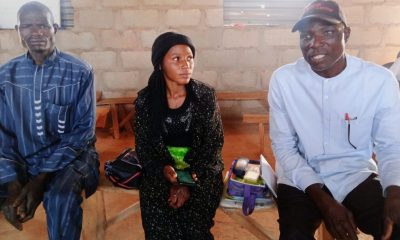

IDPs groan over alleged lack of shelter, hunger in Kaduna


Australian zoo put into lockdown after five lions escape
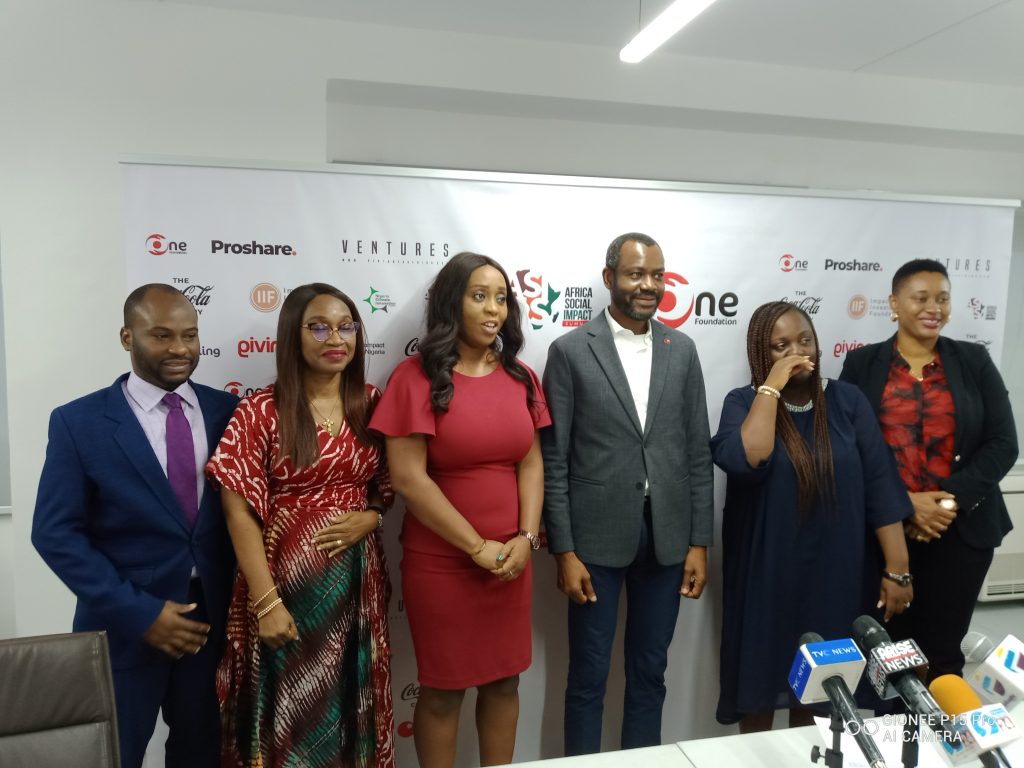

Creating rural prosperity will end hunger — Sterling Bank
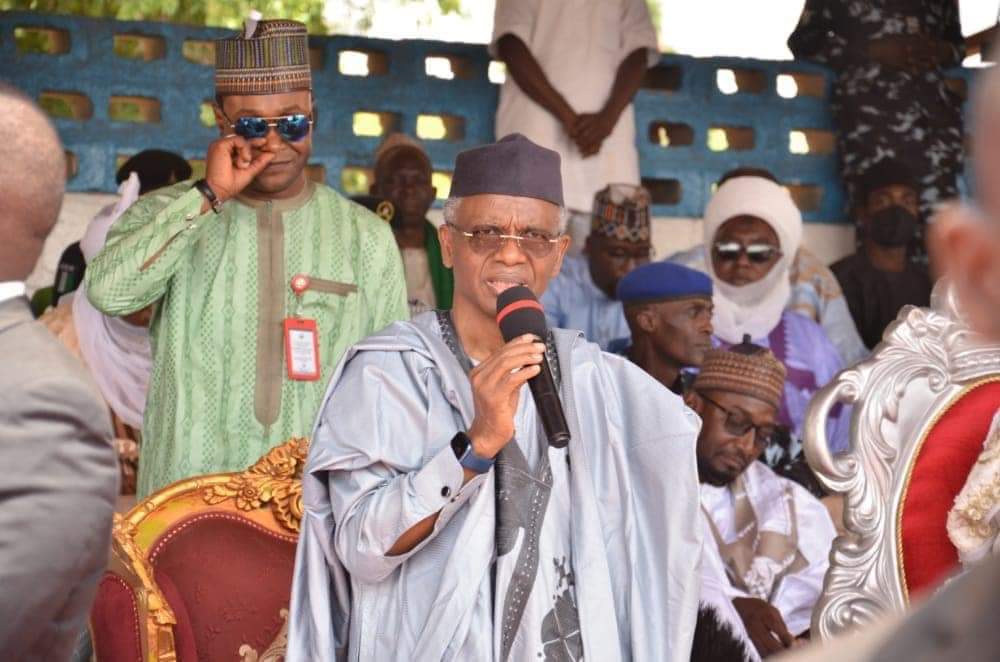

El Rufai tasks citizens on agriculture to reduce hunger


Oyakhilome hosts another phase of Your Loveworld Specials
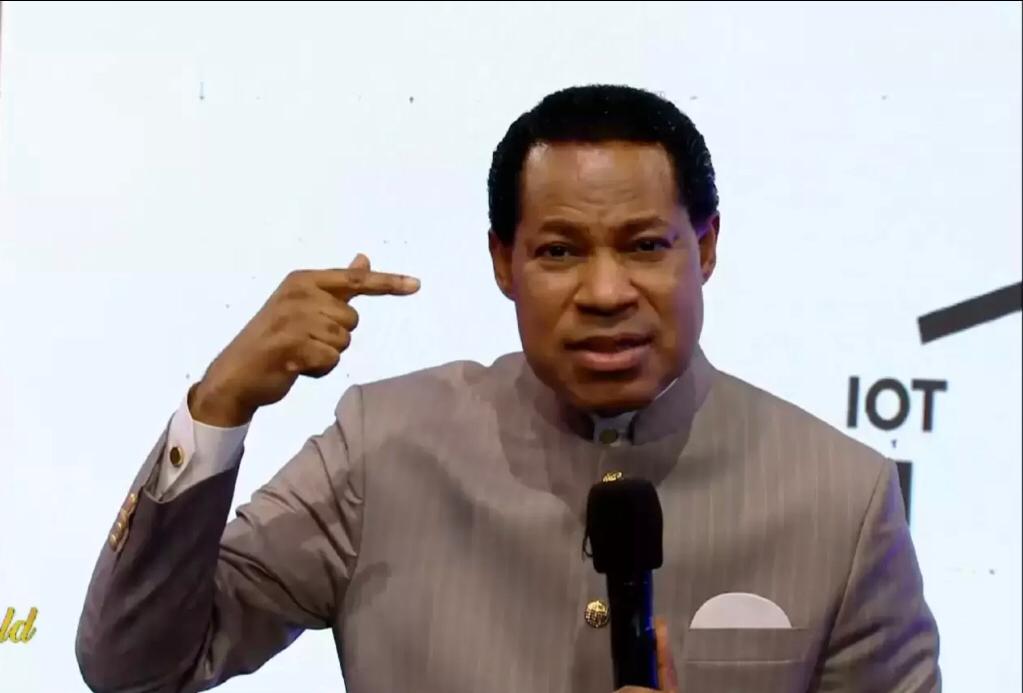

Loveworld TV UK and OFCOM’s Curious Sanction
Trending
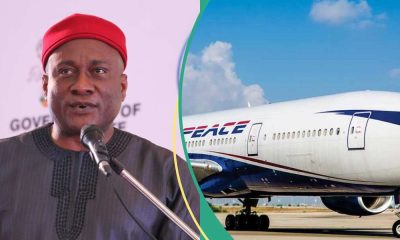
 Aviation1 week ago
Aviation1 week agoForeign airlines using lower price to force Air Peace from Nigerian-London route–Onyema

 Business6 days ago
Business6 days agoDollar crashes further against Naira at parallel market

 Business5 days ago
Business5 days agoRecapitalisation: Zenith Bank to raise funds in international capital market

 Education6 days ago
Education6 days agoArmy reveals date for COAS 2024 first quarter conference

 Crime6 days ago
Crime6 days agoFleeing driver injures two on Lagos-Badagry expressway
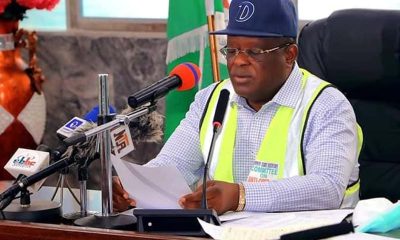
 Business1 week ago
Business1 week agoLagos Calabar Coastal Road project will offer significant economic benefits–Umahi

 Business6 days ago
Business6 days agoZenith Bank surpasses N2trn earnings milestone

 Covid-195 days ago
Covid-195 days agoBritish legislator demands Bill Gates, other ‘COVID Cabal’ faces death penalty

